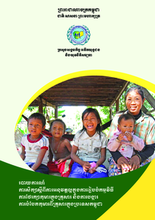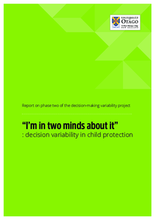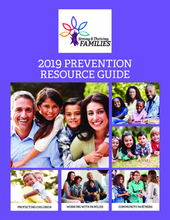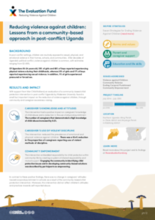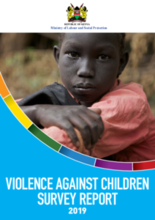Displaying 381 - 390 of 1090
This factsheet reviews best practices for conducting a digital interview recording (DIR) with children who have experienced or witnessed violence.
This episode of the Child Welfare Information Gateway podcast is part of a series focusing on Community-Based Child Abuse Prevention (CBCAP) grantees.
This report (in Khmer) provides in-depth analysis of programs of 7 different NGOs in Cambodia working on the prevention of family separation and family preservation in order to respond to risks related to physical and mental well-being and domestic violence.
This paper presents different instruments for the assessment of child abuse in families with parental mental illness.
This module is the third part of the Parenting without Violence Bronze Course. The module identifies concrete ways to integrate Parenting without Violence into your work.
Decisions in the child protection context take place in a complex environment influenced by individual decision-makers, institutional resources and practices, demographic inequalities, and family responses. This report describes some of these factors as reported by practitioners in the child protection context in Aotearoa New Zealand, providing an insight into the experiences and perceptions of front-line practitioners.
This latest report takes stock of the shifting global context and increasing movement to end corporal punishment.
The 2019 Prevention Resource Guide - created by the U.S. Department of Health and Human Services’ Children’s Bureau, Office on Child Abuse and Neglect, its Child Welfare Information Gateway, and the FRIENDS National Center for Community-Based Child Abuse Prevention - is designed to help individuals and organizations in every community strengthen families and prevent child abuse and neglect.
This program brief provides an overview of, and key findings from, an evaluation of a community-based child protection intervention in post-conflict Uganda by Makerere University.
This report presents findings from the Kenya 2019 Violence Against Children Survey (VACS).


